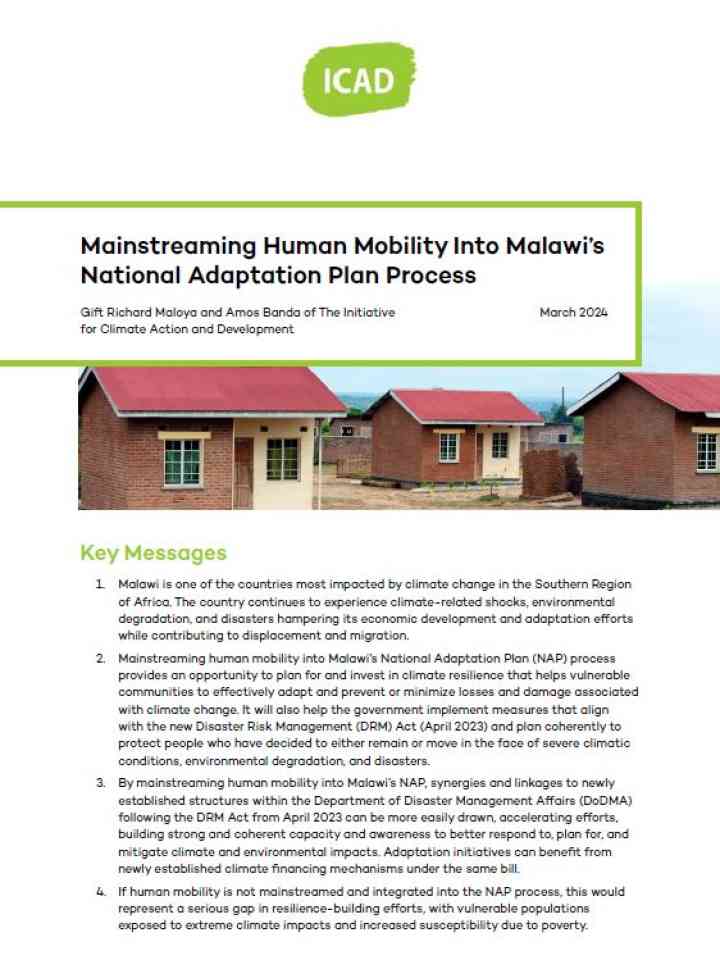Mainstreaming human mobility into Malawi's National Adaptation Plan process
This briefing note prepared by the Initiative for Climate Action and Development (ICAD) explores the status of Malawi’s NAP process, places human mobility in the context of climate change in Malawi, and uses a gender-responsive approach to identify entry points and opportunities for integrating human mobility—including migration and displacement—into Malawi’s NAP process.
Key take aways of the ICAD's briefing note:
- Malawi is one of the countries most impacted by climate change in the Southern Region of Africa. The country continues to experience climate-related shocks, environmental degradation, and disasters hampering its economic development and adaptation efforts while contributing to displacement and migration.
- Mainstreaming human mobility into Malawi’s National Adaptation Plan (NAP) process provides an opportunity to plan for and invest in climate resilience that helps vulnerable communities to effectively adapt and prevent or minimize losses and damage associated with climate change. It will also help the government implement measures that align with the new Disaster Risk Management (DRM) Act (April 2023) and plan coherently to protect people who have decided to either remain or move in the face of severe climatic conditions, environmental degradation, and disasters.
- By mainstreaming human mobility into Malawi’s NAP, synergies and linkages to newly established structures within the Department of Disaster Management Affairs (DoDMA) following the DRM Act from April 2023 can be more easily drawn, accelerating efforts, building strong and coherent capacity and awareness to better respond to, plan for, and mitigate climate and environmental impacts. Adaptation initiatives can benefit from newly established climate financing mechanisms under the same bill.
- If human mobility is not mainstreamed and integrated into the NAP process, this would represent a serious gap in resilience-building efforts, with vulnerable populations exposed to extreme climate impacts and increased susceptibility due to poverty.
Explore further
